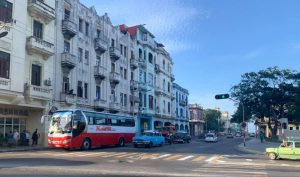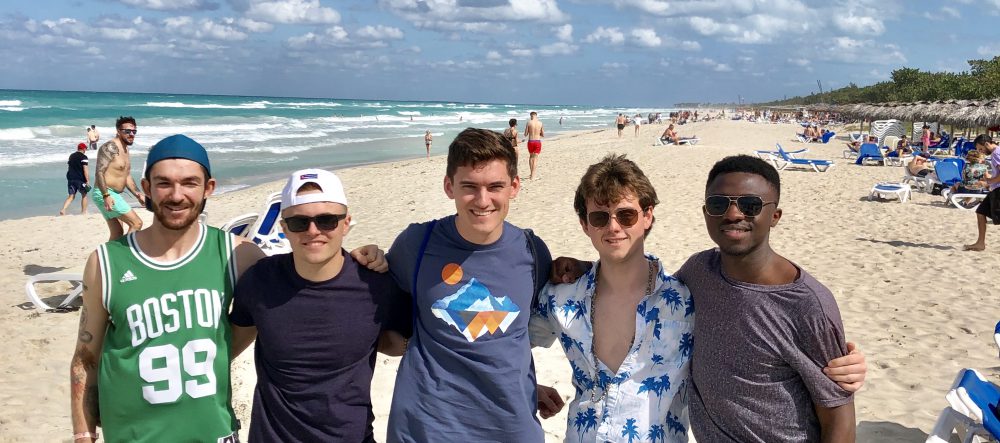Cuba was a unique experience with new lessons and adventures each day. I have the pleasure of filling you as a reader in on our fifth day in Havana, January 7th, 2020. We woke up early in the morning to the smell of eggs, bread, and pastries that our house mom, Natalia, prepared for us. Breakfast was one of the group’s favorite parts because of fresh guava juice, espresso coffee, and delicious home cooked food we could rely on.
This morning’s class was at CENESEX (The National Center of Sexual Education in Cuba or Centro Nacional de Educaíon Sexual de Cuba). I was very excited for this day because of all the controversy in the United States over Planned Parenthood, the LGBTQ community, and health care. A group of working women within the National Women’s Federation in Cuba was created in 1972 to start addressing sexual education throughout the country. In 1988, CENESEX was founded and worked independently but collaborated with national medical groups and universities for research. CENESEX’s main mission is to develop studies and assist with sexuality and sexual health, as well as ensure respect throughout the population. In order to achieve this every day, CENESEX trains people to assist in processes and help improve them, as well as use scientific research, public communication, and provide legal advice and services to its patients or clients.
CENESEX holds workshops and classes as well as provides books in 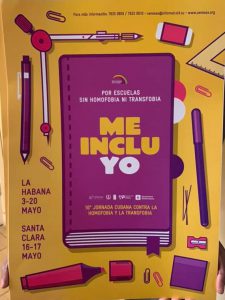 print and digital to help members of the community learn. There are 10 main topics in which CENESEX focuses, those being: public policy in comprehensive education, rights, different stages of sexuality, social integration, sexual violence, quality of life, sexual and reproductive health, child sexual abuse, human trafficking, and the LGBTQ community. Those who work in CENESEX provide help for things like couple orientation, child abuse (sexual and non sexual), transsexual counseling, and more. They have networks for people who belong to communities involving LBGTQ, mothers and pregnant women, paternity journeys, and more.
print and digital to help members of the community learn. There are 10 main topics in which CENESEX focuses, those being: public policy in comprehensive education, rights, different stages of sexuality, social integration, sexual violence, quality of life, sexual and reproductive health, child sexual abuse, human trafficking, and the LGBTQ community. Those who work in CENESEX provide help for things like couple orientation, child abuse (sexual and non sexual), transsexual counseling, and more. They have networks for people who belong to communities involving LBGTQ, mothers and pregnant women, paternity journeys, and more.
Havana has the only CENESEX location in all of Cuba, but has professors 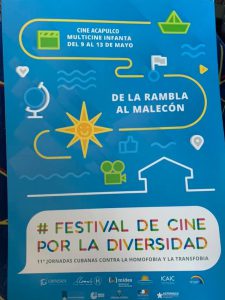 that travel near and far to educate the whole country. Each year the organization targets different providences to bring sexual education and awareness to those communities. Anyone, Cuban or not, can take advantage of the teachings and services that CENESEX offers, which I find incredible. Foreigners can take the classes at a small fee, while Cuban’s can attend for free. There are three centers throughout Cuba for children and adolescents who need help. All cases involving sexual violence or domestic abuse go through police, but CENESEX is there for the rehabilitation of the person whether the victim files a report with police or not.
that travel near and far to educate the whole country. Each year the organization targets different providences to bring sexual education and awareness to those communities. Anyone, Cuban or not, can take advantage of the teachings and services that CENESEX offers, which I find incredible. Foreigners can take the classes at a small fee, while Cuban’s can attend for free. There are three centers throughout Cuba for children and adolescents who need help. All cases involving sexual violence or domestic abuse go through police, but CENESEX is there for the rehabilitation of the person whether the victim files a report with police or not.
On top of free counseling and care through CENESEX, the government 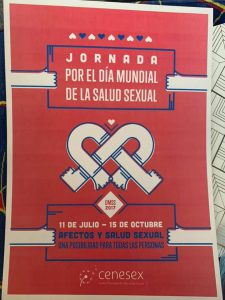 offers universal health care meaning free abortions, free birth control, free births, free sex changes and hormones, and free health services. With this being said, one must be 16 years old or older to go to hospital without parents regarding abortions. But, feminine hygiene like pads and tampons are not free, yet they are still only pennies to buy, which is very cheap.
offers universal health care meaning free abortions, free birth control, free births, free sex changes and hormones, and free health services. With this being said, one must be 16 years old or older to go to hospital without parents regarding abortions. But, feminine hygiene like pads and tampons are not free, yet they are still only pennies to buy, which is very cheap.
I was mind blown by the free services the Cuban government offers its people. From the comments and people we spoke to, many seem to like the healthcare system and the services provided. I found this topic to be very interesting due to how different things are handled than in the US.
After the groups CENESEX visit, we had our afternoon classes at CIPS. We were taught a brief history of the Cuban revolutions. The biggest take away from our first lesson was that Cuba was a prime place for trade routes as it was between the Americas and close to the Panama Canal. The land was highly desirable and rich which caused many issues worldwide for battles over the country. Agreement and treaty after agreement and treaty kept leaving Cuba with less and less imports, causing economic crisis. What I found most interesting was in 1994, the US declared that any Cuban who crossed the Gulf Coast and touched American soil was allowed to stay, but almost all who were caught in ocean trying to make it to the US were brought back to Cuba. This almost promotes illegal immigration but gives a loophole for those who are lucky enough to make it to the US. Then in 2004 the US produced a 400 page document telling Cuba the country they would need to be in order to get US support, but it was not what Cuba wanted. The more we were taught the more I realized how complicated our relationship with Cuba has been for decades upon decades.
Like most days, after our lessons were done, we had free time for independent study. Many of us utilized this time to really immerse ourselves with the locals; a group of us walked the Veradero neighborhood and enjoyed the community. Even though we spent some days in classrooms, it was locals who were teaching us about their country. We were able to ask questions and learn a local’s perspective on how things truly are. The conclusion can be made that even though there is a bunch of controversy over Cuba, Cuban’s are proud of their country and history; they want to educate the world about what they truly love and admire in their country.
